Looking to start a business in Australia this year? The Australian entrepreneurial landscape is thriving with opportunities across various sectors. Whether you’re a seasoned business owner or a first-time entrepreneur, Australia offers a stable economy, government support, and a diverse market ready for innovation.
In this comprehensive guide, we’ll explore the most promising business ideas in Australia for 2026, from emerging tech ventures to sustainable enterprises. We’ll analyse market trends, startup costs, legal requirements, and growth potential to help you find the perfect business opportunity that aligns with your skills and interests.
Why Start a Business in Australia?
Australia presents a compelling case for entrepreneurs looking to establish new ventures. With its robust economy, strategic location in the Asia-Pacific region, and business-friendly policies, Australia offers numerous advantages for startups and small businesses alike.
Strong Economic Foundation
Australia boasts one of the most resilient economies globally, having experienced nearly three decades of continuous economic growth before the pandemic. The country’s GDP is expected to grow steadily in 2026, creating a stable environment for new businesses to flourish.
Government Support and Grants
The Australian government actively supports entrepreneurship through various initiatives and grants. Programs like the Entrepreneurs’ Programme and the Small Business Digital Grants provide financial assistance to help businesses get off the ground and scale effectively.
Favourable Tax Environment
With a corporate tax rate of 25% for small to medium businesses (compared to higher rates in many developed countries), Australia offers a relatively favourable tax environment. Additionally, the Australian Taxation Office (ATO) provides resources specifically designed to help new business owners navigate tax obligations.
Strategic Geographic Position
Australia’s location provides unique access to the rapidly growing Asia-Pacific markets, making it an ideal base for businesses with international ambitions. Free trade agreements with countries like China, Japan, and South Korea further enhance export opportunities.
Skilled Workforce
Australia’s high-quality education system produces a skilled and diverse workforce. The country’s multicultural population brings varied perspectives and international connections that can be invaluable for business growth and innovation.
Innovation Culture
Australia has a growing reputation for innovation, with success stories like Atlassian, Canva, and Afterpay demonstrating the country’s capacity to produce globally competitive businesses. The innovation ecosystem includes numerous incubators, accelerators, and coworking spaces that support emerging entrepreneurs.

Top 25 Profitable Business Ideas in Australia for 2026
The Australian market offers diverse opportunities across multiple sectors. We’ve researched current market trends, consumer demands, and the regulatory landscape to bring you the most promising business ideas for 2026. These ideas span various industries, investment levels, and skill requirements, ensuring there’s something for every aspiring entrepreneur.
Technology and Digital Services
1. Digital Marketing Agency
With businesses increasingly shifting online, the demand for digital marketing expertise continues to grow. Specialising in SEO, social media management, or content marketing can help you carve out a profitable niche in this competitive sector.

Startup costs: $5,000-$20,000
Growth potential: High, with recurring revenue models
2. App Development
Mobile app usage continues to surge in Australia, creating opportunities for developers who can create solutions for local businesses or address specific Australian market needs. Focus on sectors like healthcare, education, or retail for maximum impact.

Startup costs: $10,000-$50,000
Growth potential: Very high for successful apps
3. Cybersecurity Services
As cyber threats increase, Australian businesses of all sizes need robust security solutions. Offering cybersecurity consulting, implementation, or managed services can be highly profitable, especially with the government’s increased focus on digital security.

Startup costs: $15,000-$75,000
Growth potential: Excellent, with increasing demand
Sustainability and Green Businesses
4. Renewable Energy Consulting
Australia’s commitment to renewable energy creates opportunities for consultants who can help businesses and homeowners transition to solar, wind, or other sustainable energy sources. This sector benefits from government incentives and growing environmental awareness.

Startup costs: $10,000-$30,000
Growth potential: High, with government support
5. Sustainable Fashion Brand
Eco-conscious consumers are increasingly seeking sustainable clothing options. Creating a fashion brand using recycled materials, ethical production methods, or innovative sustainable fabrics can tap into this growing market segment.

Startup costs: $20,000-$100,000
Growth potential: Moderate to high
6. Eco-friendly Packaging Solutions
With plastic packaging bans expanding across Australia, businesses need alternative packaging solutions. Providing biodegradable, compostable, or reusable packaging options to local businesses can be both profitable and environmentally beneficial.
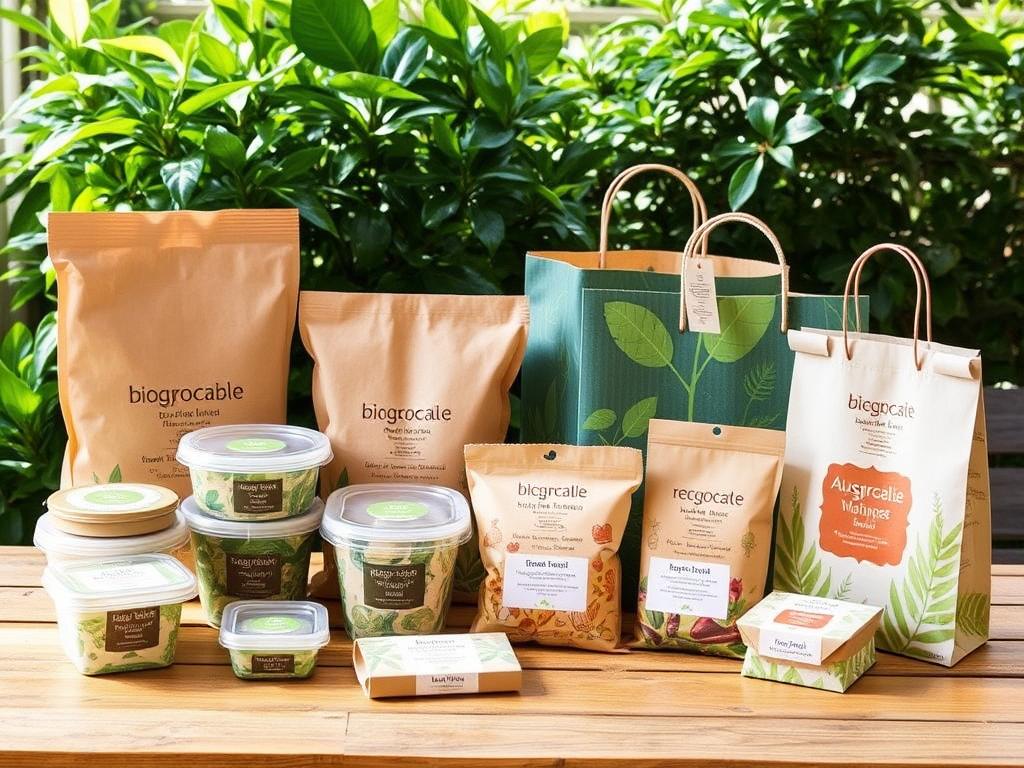
Startup costs: $25,000-$150,000
Growth potential: High, with increasing regulations
Health and Wellness
7. Telehealth Services
The pandemic accelerated the adoption of telehealth in Australia, and this trend continues to grow. Starting a telehealth platform or service that connects patients with healthcare providers can address accessibility issues, particularly in regional areas.

Startup costs: $50,000-$200,000
Growth potential: Very high
8. Mental Health and Wellness App
Mental health awareness is growing in Australia, creating demand for accessible support tools. Developing an app that offers meditation, therapy resources, or mental health tracking can serve this important need while building a sustainable business.

Startup costs: $30,000-$150,000
Growth potential: High, with subscription models
9. Specialised Fitness Studio
Australians are increasingly seeking unique fitness experiences beyond traditional gyms. Opening a specialised fitness studio focusing on HIIT, barre, reformer Pilates, or other trending workout styles can attract dedicated clientele willing to pay premium prices.

Startup costs: $75,000-$250,000
Growth potential: Moderate to high
Food and Hospitality
10. Ghost Kitchen
The food delivery market continues to expand in Australia. Operating a ghost kitchen (delivery-only restaurant) reduces overhead costs while allowing you to serve multiple food concepts from one location, maximising efficiency and profit potential.

Startup costs: $50,000-$150,000
Growth potential: High, with low overhead
11. Speciality Coffee Roastery
Australia’s sophisticated coffee culture creates opportunities for speciality coffee roasters. Focusing on ethically sourced beans, unique roasting techniques, or Australian-inspired flavour profiles can help you stand out in this competitive but profitable market.

Startup costs: $75,000-$200,000
Growth potential: Moderate, with loyal customers
12. Meal Prep Service
Time-poor Australians increasingly seek convenient, healthy meal options. A meal preparation service delivering nutritious, portion-controlled meals can serve busy professionals, fitness enthusiasts, and health-conscious consumers looking to simplify their eating habits.
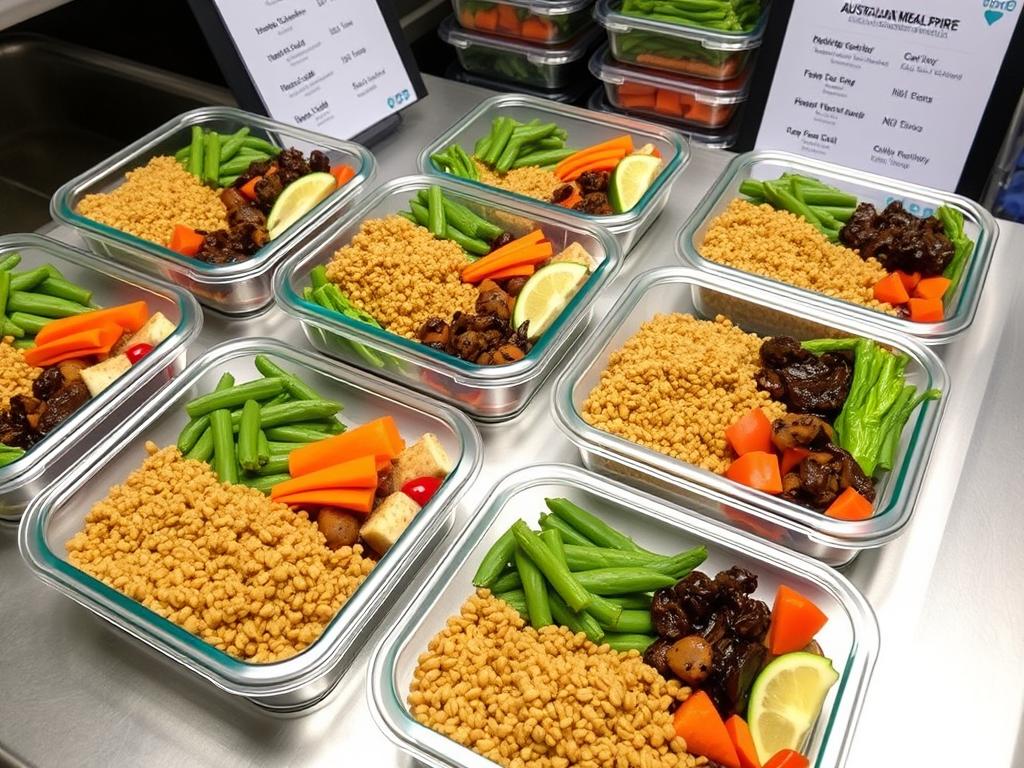
Startup costs: $25,000-$100,000
Growth potential: High, with subscription models
E-commerce and Retail
13. Australian-Made Products Marketplace
Supporting local producers has gained momentum in Australia. Creating an online marketplace that exclusively features Australian-made products can tap into consumers’ desire to support local businesses while offering a valuable platform for domestic manufacturers.
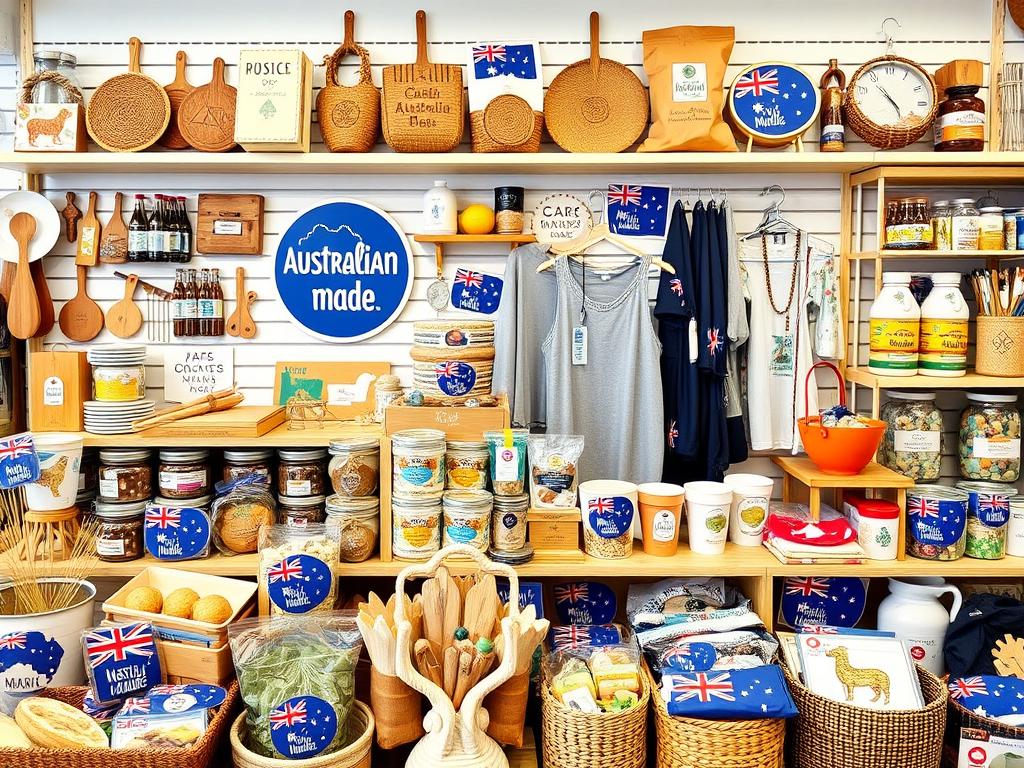
Startup costs: $15,000-$100,000
Growth potential: High, with commission model
14. Subscription Box Service
Curated subscription boxes continue to gain popularity. Creating a subscription service featuring Australian products, whether focused on food, beauty, books, or other niches, can generate predictable recurring revenue while supporting local suppliers.

Startup costs: $10,000-$50,000
Growth potential: Moderate to high
15. Dropshipping Speciality Products
Dropshipping remains a low-investment e-commerce option. Focusing on speciality products not readily available in Australia or curating products for specific niches can help you stand out in this competitive space while minimising inventory costs.
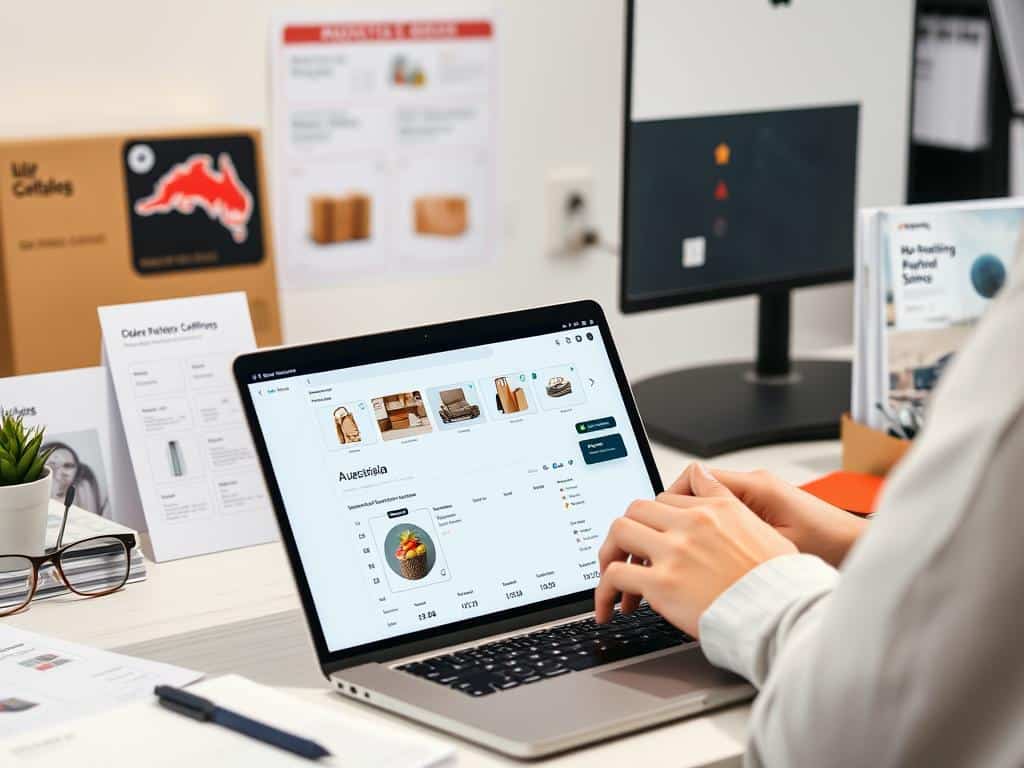
Startup costs: $1,000-$10,000
Growth potential: Moderate, with proper niche selection
Ready to Validate Your Business Idea?
Explore market research tools and resources to test the viability of your business concept before investing significant time and money.
Australia-Specific Niche Ideas
Australia’s unique geography, climate, and culture create opportunities for specialised businesses that address local needs and challenges. These niche ideas leverage Australia’s distinctive characteristics to create valuable services and products.
16. Bushfire-Resistant Landscaping
With bushfire seasons becoming more intense, property owners need landscaping solutions that reduce fire risks. Offering specialised bushfire-resistant landscaping services, including plant selection, property assessment, and ongoing maintenance, addresses a critical need in vulnerable areas.
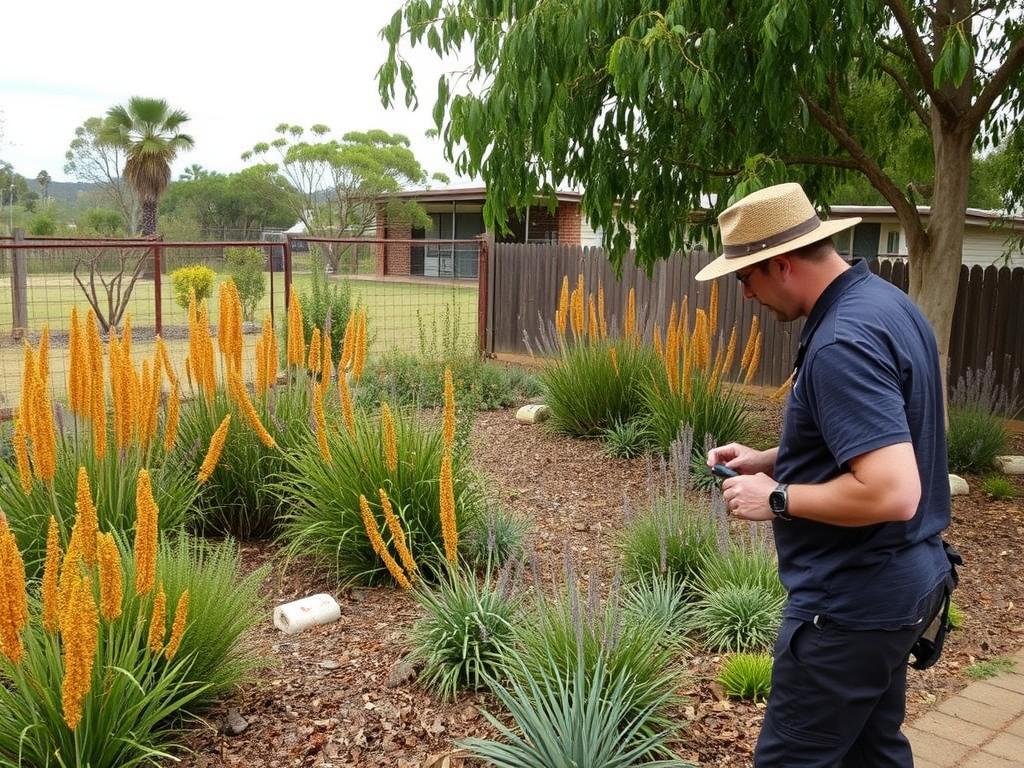
Startup costs: $15,000-$50,000
Growth potential: High in fire-prone regions
17. Outback Tourism Experiences
Australia’s outback offers unique tourism opportunities. Creating specialised tours that showcase Indigenous culture, star-gazing experiences, or wildlife encounters can attract both domestic and international tourists seeking authentic Australian experiences.

Startup costs: $50,000-$150,000
Growth potential: High, especially post-pandemic
18. Coastal Property Maintenance
Australia’s extensive coastline means many properties face unique maintenance challenges from salt air, high winds, and coastal erosion. A specialised maintenance service addressing these specific issues can serve holiday homes, coastal businesses, and permanent residences.
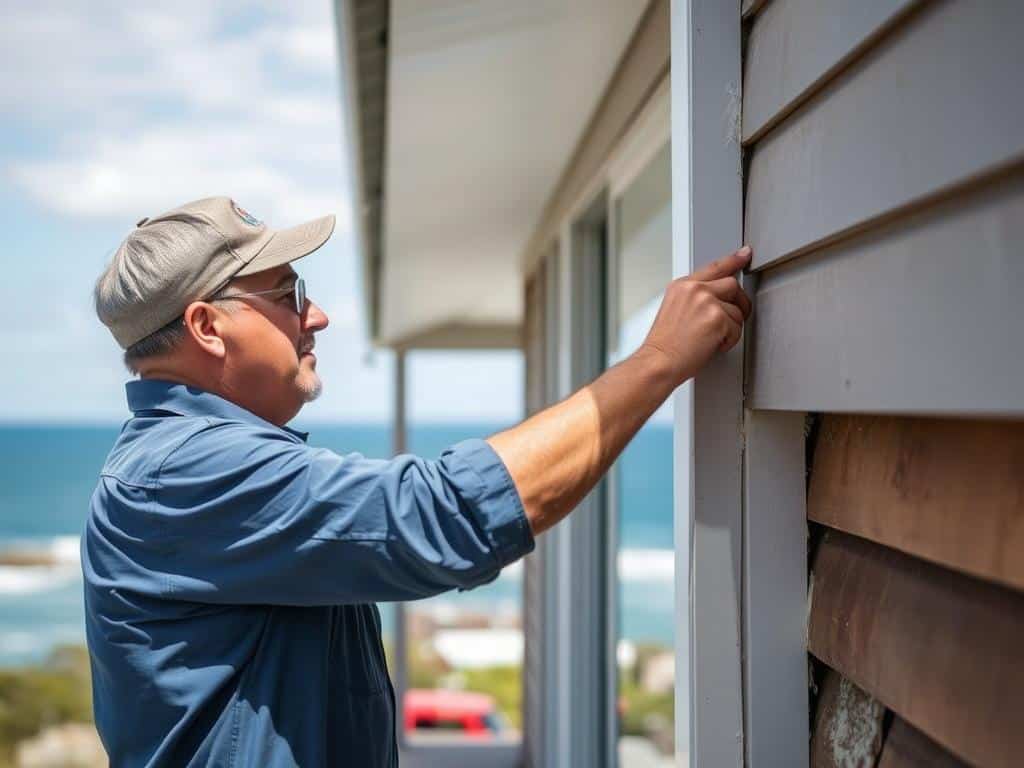
Startup costs: $10,000-$50,000
Growth potential: Moderate to high
19. Heat-Resistant Building Materials
Australia’s extreme temperatures create demand for building materials that improve energy efficiency and comfort. Distributing or manufacturing innovative heat-resistant building materials can serve both new construction and renovation markets across the country.

Startup costs: $100,000-$500,000
Growth potential: High, with climate concerns
20. Water Conservation Solutions
Water scarcity affects many parts of Australia. Providing water conservation solutions—such as rainwater harvesting systems, greywater recycling, or drought-resistant landscaping—addresses an ongoing environmental challenge while offering valuable services to property owners.
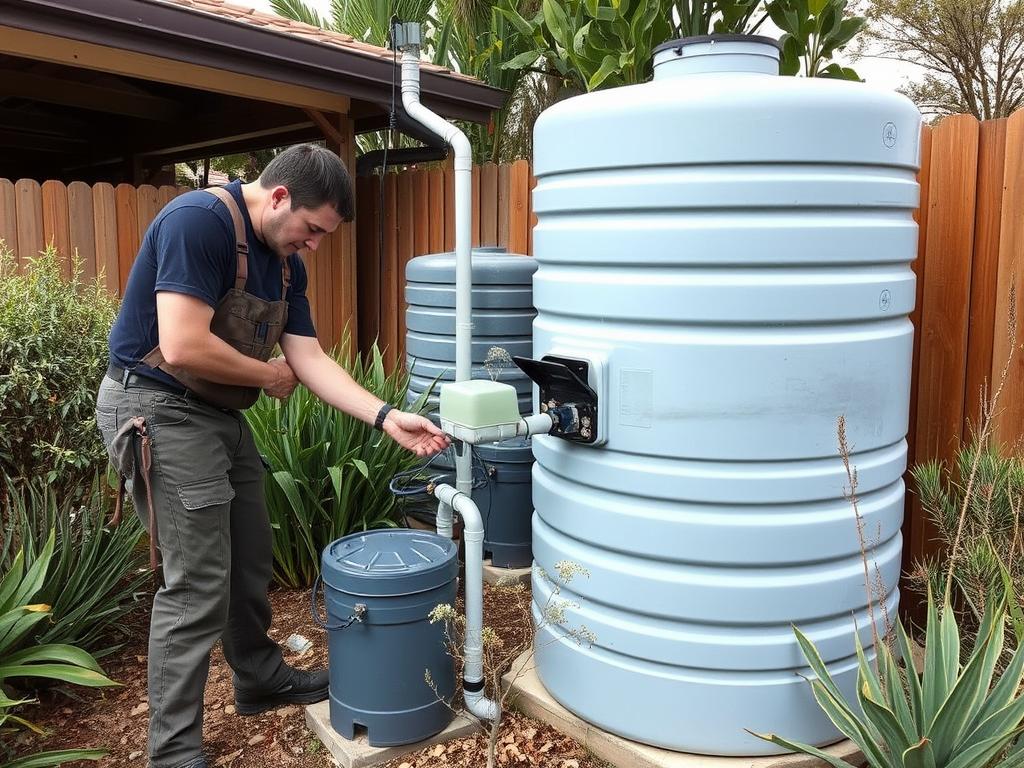
Startup costs: $25,000-$100,000
Growth potential: High in drought-prone areas
21. Solar-Powered Cooling Solutions
Australia’s abundant sunshine and hot climate create perfect conditions for solar-powered cooling technologies. Developing or distributing innovative cooling solutions that harness solar energy can reduce electricity costs while addressing comfort needs in Australia’s climate.
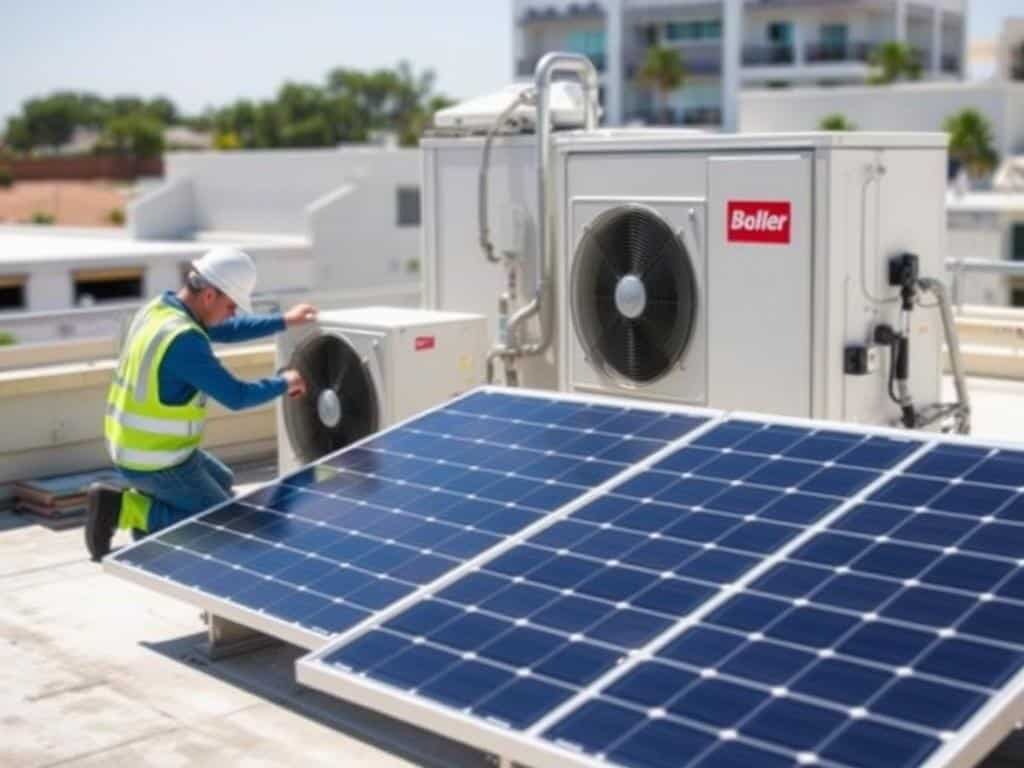
Startup costs: $50,000-$200,000
Growth potential: Very high
Service-Based Businesses
22. Virtual Assistant Services
The rise of remote work has increased demand for virtual assistants. Offering administrative support, social media management, or specialised services to busy professionals and small businesses can be started with minimal investment while providing flexible work arrangements.
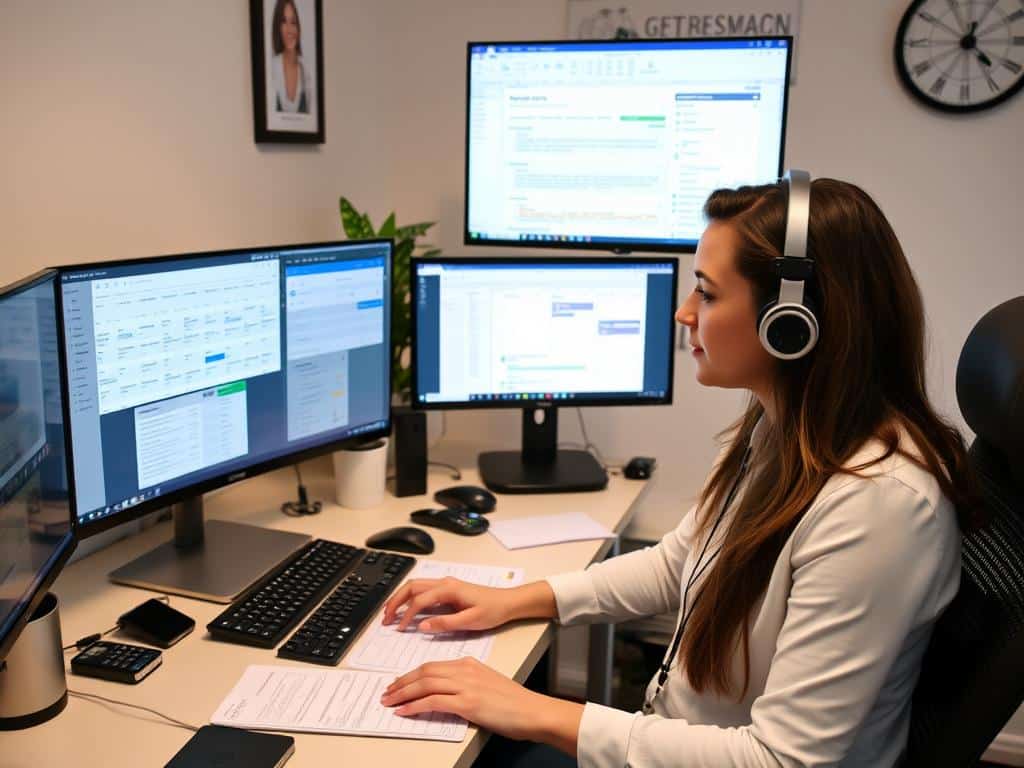
Startup costs: $1,000-$5,000
Growth potential: Moderate to high
23. Aged Care Support Services
Australia’s ageing population creates growing demand for in-home support services. Providing non-medical assistance such as companionship, transportation, meal preparation, or home maintenance helps seniors maintain independence while addressing a critical social need.

Startup costs: $10,000-$50,000
Growth potential: Very high
24. Pet Services
Australia has one of the highest pet ownership rates globally. Specialised pet services—such as mobile grooming, pet sitting, dog walking, or training—can tap into Australians’ willingness to invest in their pets’ wellbeing and convenience services.
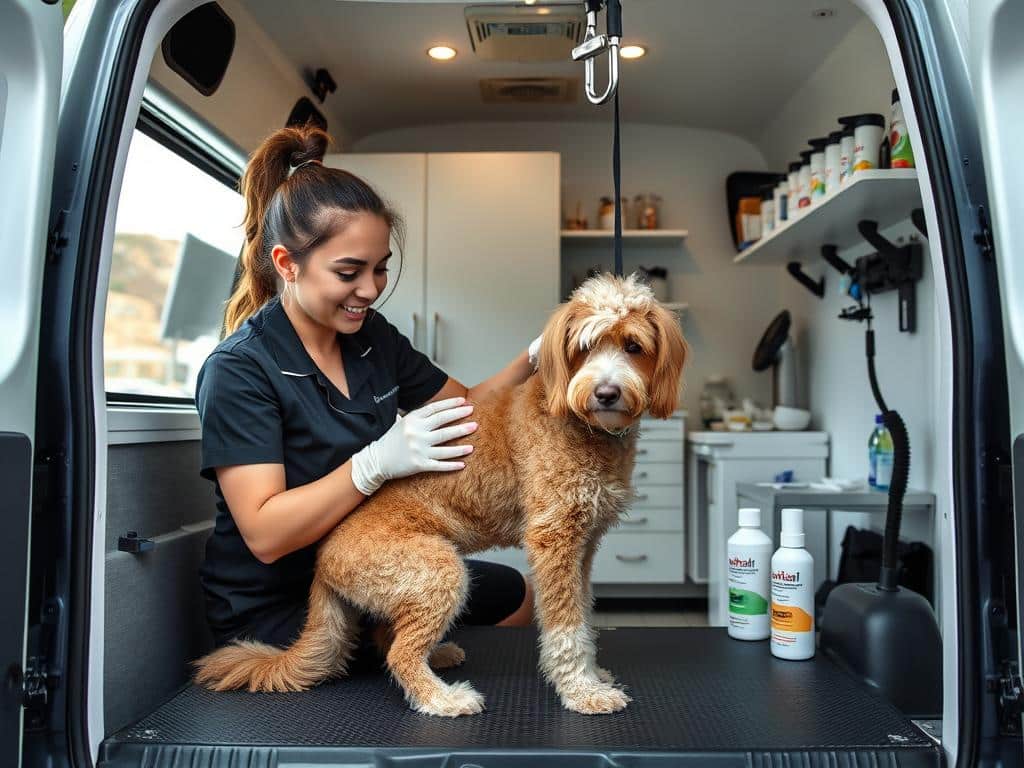
Startup costs: $5,000-$50,000
Growth potential: High, with loyal clientele
25. Financial Coaching
With economic uncertainty and changing retirement landscapes, Australians increasingly seek financial guidance. Offering financial coaching services that help clients with budgeting, debt reduction, investment basics, or retirement planning can serve this growing need.

Startup costs: $5,000-$20,000
Growth potential: Moderate to high
Detailed Analysis of 5 High-Potential Business Ideas
Let’s take a closer look at five business ideas with particularly strong potential in the Australian market. We’ll examine startup costs, legal requirements, scalability, and other important factors to consider before launching these ventures.
1. Renewable Energy Consulting
Startup Costs Breakdown
Legal Requirements
Scalability Potential
Renewable energy consulting offers excellent scalability options. You can start as a solo consultant and gradually expand by:
Market Outlook
Australia’s commitment to renewable energy continues to strengthen, with the government targeting 82% renewable electricity by 2030. This creates sustained demand for consulting services as businesses and homeowners seek to reduce energy costs and carbon footprints.

2. Specialised Fitness Studio
Startup Costs Breakdown
Legal Requirements
Scalability Potential
Specialised fitness studios offer multiple avenues for growth:
Market Outlook
The fitness industry in Australia continues to evolve, with consumers increasingly seeking specialised, boutique experiences over traditional gym memberships. Post-pandemic, there’s renewed interest in health and wellness, creating opportunities for fitness businesses that offer unique value propositions and community connection.

3. Australian-Made Products Marketplace
Startup Costs Breakdown
Legal Requirements
Scalability Potential
An Australian-made marketplace can scale through various strategies:
Market Outlook
The “buy local” movement has gained significant momentum in Australia, particularly following supply chain disruptions during the pandemic. Consumers increasingly value Australian-made products for quality, sustainability, and economic support reasons. This trend is expected to continue, creating opportunities for platforms that connect local producers with domestic consumers.
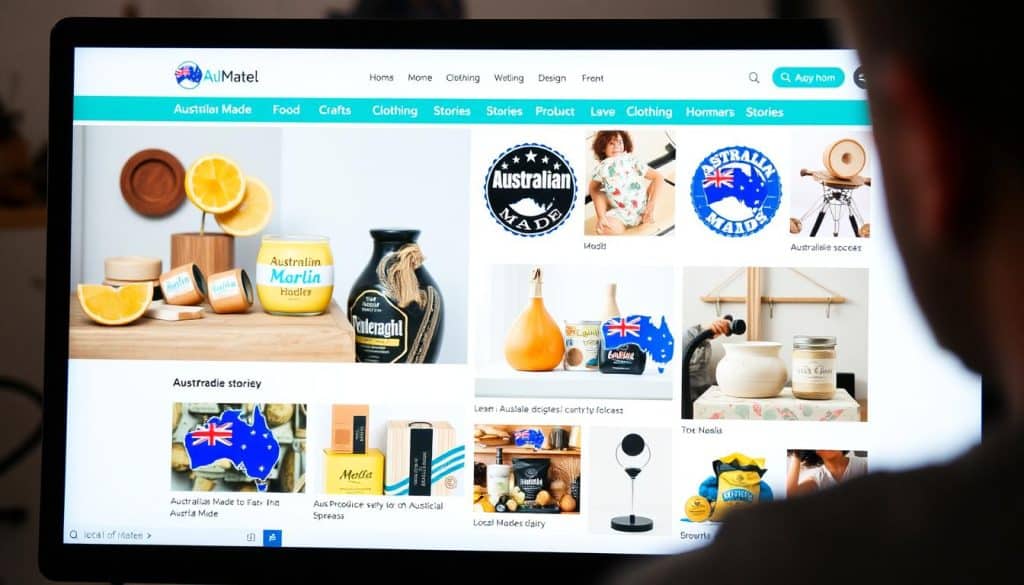
4. Telehealth Services
Startup Costs Breakdown
Legal Requirements
Scalability Potential
Telehealth services offer significant scalability opportunities:
Market Outlook
Telehealth adoption accelerated dramatically during the pandemic and continues to grow as both patients and providers recognize its convenience and effectiveness. The Australian government has extended Medicare support for telehealth services, indicating long-term commitment to this healthcare delivery model. Rural and regional areas particularly benefit from telehealth, creating opportunities to address healthcare access challenges.

5. Eco-friendly Packaging Solutions
Startup Costs Breakdown
Legal Requirements
Scalability Potential
Eco-friendly packaging businesses can scale through various approaches:
Market Outlook
Australia’s phase-out of single-use plastics continues to accelerate, with different states implementing bans on various plastic products. This regulatory environment, combined with growing consumer demand for sustainable options, creates strong market conditions for eco-friendly packaging solutions. Businesses across sectors are actively seeking alternatives to conventional packaging, creating diverse opportunities for innovative providers.

Challenges to Consider When Starting a Business in Australia
While Australia offers many advantages for entrepreneurs, it’s important to be aware of potential challenges you may face when launching a new business. Understanding these obstacles can help you develop strategies to overcome them and increase your chances of success.
Competitive Market Landscape
Australia’s developed economy means many sectors have established players with strong market positions. New businesses must identify clear differentiators or underserved niches to compete effectively. Conducting thorough competitive analysis before launch is essential to understand the landscape and position your business appropriately.
High Operating Costs
Australia has relatively high labour costs, rent, and utilities compared to many other countries. This can impact profitability, particularly for labour-intensive businesses or those requiring significant physical space. Careful financial planning and consideration of automation or remote work options can help manage these costs.
Geographic Isolation
Australia’s distance from major global markets can create supply chain challenges and increase shipping costs for businesses relying on imported materials or exporting products. Building relationships with reliable suppliers and logistics partners is crucial for businesses with international components.
Regulatory Compliance
Australia has comprehensive regulatory frameworks across various industries. Navigating these regulations requires time and resources, particularly in highly regulated sectors like food, healthcare, or financial services. Staying informed about relevant regulations and potentially seeking professional advice can prevent costly compliance issues.
Skilled Labour Shortages
Certain industries face challenges finding qualified workers, particularly in technical or specialised fields. This can slow growth or increase labour costs as businesses compete for talent. Developing strong recruitment strategies, offering competitive benefits, and considering training programs can help address these challenges.
Climate and Environmental Factors
Australia’s climate extremes—including droughts, floods, and bushfires—can impact businesses, particularly those in agriculture, tourism, or with significant outdoor operations. Developing risk management strategies and contingency plans is important for businesses vulnerable to these factors.

Frequently Asked Questions
What’s the easiest business to start in Australia?
Service-based businesses with low startup costs are typically the easiest to launch in Australia. These include:
- Virtual assistant services
- Freelance writing or graphic design
- Social media management
- Pet sitting or dog walking
- Cleaning services
These businesses require minimal initial investment, can often be operated from home, and have straightforward regulatory requirements. However, “easy to start” doesn’t necessarily mean “easy to grow”—all businesses require dedication and strategic planning to become profitable and sustainable.
How much does it cost to register a business in Australia?
The basic costs to register a business in Australia include:
- Australian Business Number (ABN): Free
- Business name registration: $37 for one year or $88 for three years
- Company registration (if forming a company): Approximately $500-$600
- Domain name registration: $15-$50 per year
- Trademark registration (optional): $250-$600 per class
Additional costs may apply depending on your business structure, industry, and location. Some industries require specific licenses or permits that may involve additional fees. It’s advisable to check with your local council and relevant industry bodies for any specific requirements.
What business structure should I choose for my Australian business?
Australia offers several business structures, each with different legal and tax implications:
- Sole Trader: Simplest structure with minimal setup costs, but you’re personally liable for business debts.
- Partnership: Suitable for businesses with multiple owners who share responsibility and liability.
- Company: A separate legal entity that provides personal asset protection but involves more compliance requirements and costs.
- Trust: Complex structure often used for asset protection and tax planning.
The best structure depends on your specific circumstances, including risk profile, growth plans, and tax situation. Consulting with an accountant or business advisor before deciding is highly recommended.
What government grants are available for new businesses in Australia?
Australia offers various grants and assistance programs for new businesses, including:
- Entrepreneurs’ Programme: Provides advice and funding for innovative businesses.
- Export Market Development Grant: Reimburses export promotion expenses for eligible businesses.
- R&D Tax Incentive: Tax offset for eligible research and development activities.
- State-specific grants: Each state and territory offers additional grants targeting local business development.
- Industry-specific grants: Various sectors (e.g., renewable energy, manufacturing) have targeted funding programs.
The business.gov.au website provides a comprehensive grant finder tool to identify opportunities relevant to your specific business. Eligibility criteria and application processes vary significantly between programs.
How long does it take to start a business in Australia?
The timeline for starting a business in Australia varies depending on the business type and structure:
- Basic registrations (ABN, business name): 1-3 business days
- Company registration: 1-2 business days
- Industry-specific licenses: Varies significantly (1-8 weeks)
- Setting up business bank accounts: 1-5 business days
- Tax registrations (GST, PAYG): 1-14 days
For simple business structures like sole traders with minimal regulatory requirements, you could be operational within a week. More complex businesses requiring special permits, leased premises, or extensive setup may take several months from planning to launch. Creating a detailed timeline during your planning phase can help manage expectations and ensure all necessary steps are completed.
Conclusion: Taking the Next Step with Your Business Idea
Australia’s diverse economy and supportive business environment offer numerous opportunities for entrepreneurs in 2026. From technology and sustainability to health and hospitality, the business ideas we’ve explored represent just a fraction of the possibilities available to aspiring business owners.
The key to success lies not just in identifying a promising idea, but in thorough research, careful planning, and persistent execution. Before investing significant time and resources, take the time to validate your concept, understand your target market, and develop a comprehensive business plan.
Remember that entrepreneurship is a journey that requires resilience and adaptability. Many successful Australian businesses, from Atlassian to Canva, faced challenges and pivoted their strategies before achieving their current success. Stay informed about market trends, be responsive to customer feedback, and remain flexible as you build your business.
Australia’s entrepreneurial ecosystem offers numerous resources to support your journey, from government programs and industry associations to mentorship networks and coworking spaces. Take advantage of these resources as you transform your business idea into reality.
Ready to Turn Your Business Idea into Reality?
Start by validating your concept with market research and creating a solid business plan. Access industry reports, market size data, and competitor analysis to make informed decisions.

















